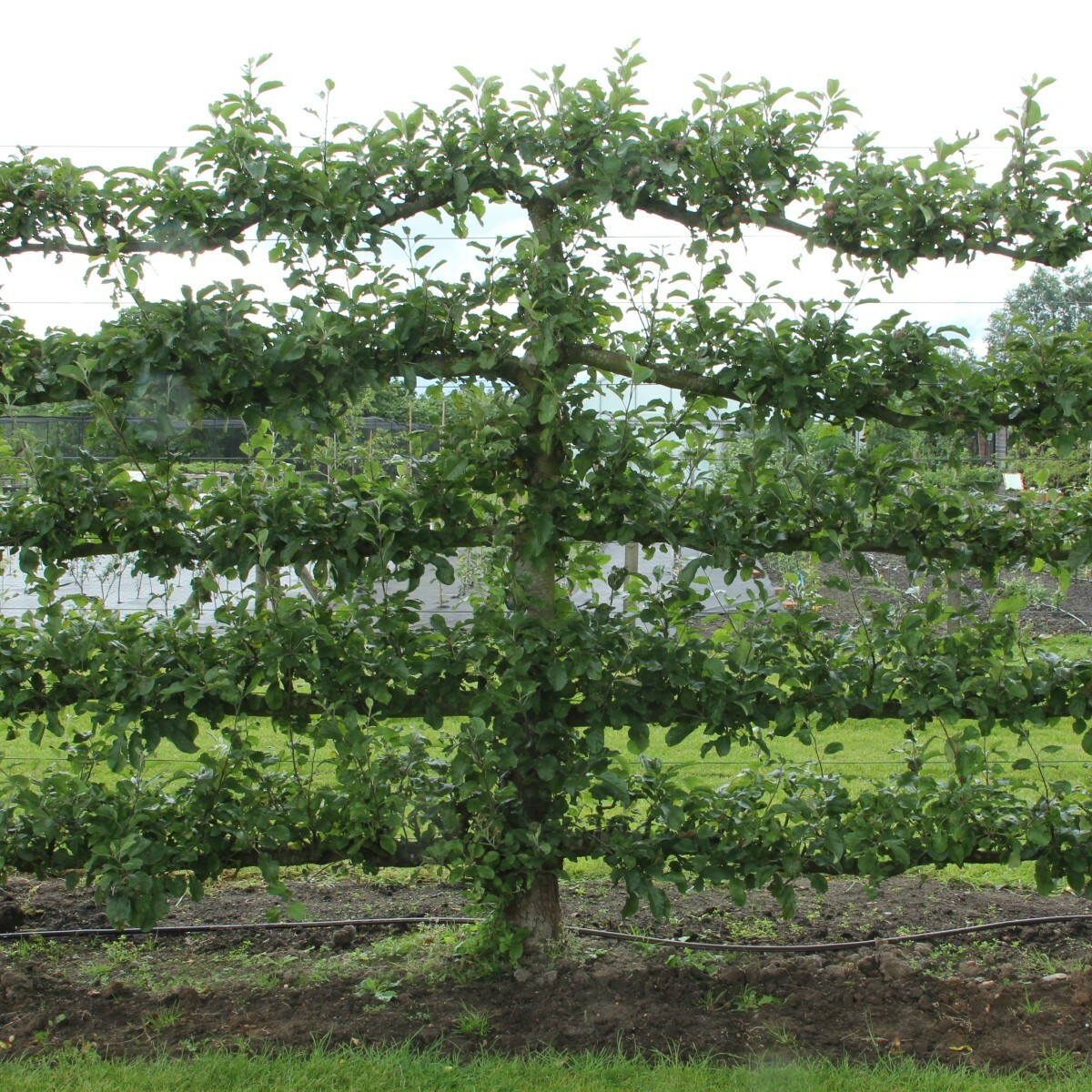
Trained Fruit Trees
Trained fruit trees can be the highlight of any garden – they are a superb example of form, function and beauty. From the elegant bare branches covered with frost in the depths of winter, through to eye-catching displays of blossom and then boughs laden with fruit in Autumn, they provide year-round interest and structure in any setting. They are so versatile that there is bound to be shape which fits into any garden space, no matter how small – cordons can be planted as little as 1m apart. Espaliers or step-overs can be used as a garden divide or to line paths, edge borders and soften fences and walls. It can also be an opportunity to grow a more exotic tree such as peach, nectarine or fig, which will benefit from the warmth and shelter of being grown along a brick wall.
The origins of training fruit trees are unclear, but there is evidence of a picture of a fan-trained fig found in the tomb of an Egyptian army commander. The Romans continued the practice, and it was widely used in the Middle Ages throughout much of Northern Europe. In Belgium it became a very popular way of escaping land tax – farmers were taxed on the acreage under cultivation. It was the last half of the nineteenth century that the fashion for trained trees reached its peak. New shapes such as the Palmette Verrier and Belgian Fence were developed until training trees became an art form.
Recently the use of trained trees has once again become more popular. Large houses are renovating walled gardens, community projects are using them to fit fruit trees into a small space, and home gardeners are once again falling in love with them as they realise just how useful and decorative these forms can be.
The range of trained fruit trees we offer for sale is, we believe, the most extensive in the country. All are trained by our team of professional nurserymen, and available as bare root trees between November and March. If you have any questions about selecting the right variety, rootstock or pruning guidance, there is a wealth of advice in our Knowledge Base.
Otherwise please contact the team via email and we'll be happy to help. sales@rvroger.co.uk

